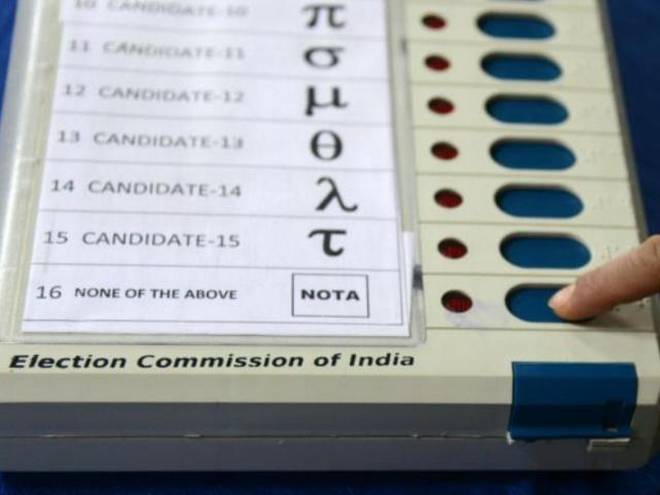
Co-Written by Snehil Kunwar Singh & Bhaskar Kumar
In what comes as a significant step towards free and transparent democracy, a three-judge bench of the Supreme Court (SC) comprising CJI Dipak Misra and Justices A.M. Khanwilkar and D.Y. Chandrachud has quashed the circulars of the Election Commission of India (ECI) introducing NOTA in elections to the Rajya Sabha. In fact, the SC has termed the circular issued by the ECI as “Satan of Defection & Corruption”.
In the context of casting his votes, as per the Schedule X to the Constitution, a member of the House belonging to any political party shall be disqualified for being a member of the House if he votes or abstains from voting in the House contrary to any direction issued by the political party to which he belongs to. It is quite interesting to note that such defection applies for the purposes of business of the house. It does not cover any vote outside the House, like voting for the Rajya Sabha election, President’s election. In Kuldip Nayarv. Union of India, the SC has held that these elections are ‘happening outside the house’ to which the Anti-defection law doesn’t apply. This effectively means that whip of the party would not apply against the legislator voting in the Rajya Sabha election.
In Rajya Sabha elections where the result can be fairly predicted on the basis of voting by the electors, NOTA would go a long way in manipulating results. NOTA would leave ample space for the legislator to exercise it despite his political party setting up a candidate. It is a matter of grave concern because party whip is made to ensure compliance with the command of the party. This goes against the foundational values of party discipline which is of the extreme significance, for that is the fulcrum of the existence of political parties and forms the core of our parliamentary democratic structure and would undermine the principles of fairness of election, the very foundation of our democracy and the principles which sustain it. In fact, introduction of NOTA indirectly defeats the aim with which Anti-defection laws were introduced.
NOTA creates an anomalous situation and brings in horse trading, corruption and use of extra-constitutional means which adversely affects the voting. In Manoj Narula v. Union of India, the SC had categorically stated that the democratic body polity stipulates the quintessential idea of democracy is abhorrent to corruption. Rightly ruled by the SC in the present case, NOTA is “an anathema to the fundamental criterion of democracy which is a basic feature of the Constitution”.
In 2013, the SC had allowed the exercise of NOTA in direct elections to foster purity and vibrancy of elections and ensure wide participation as people who are not satisfied with the candidates in the fray would also turn up to express their opinion rejecting the contestants. In fact, the negative signalling to political party would force the political parties to select good candidates. This would promote fair elections, unlike NOTA in election to the Rajya Sabha.
The difference between use of NOTA in direct elections and indirect elections must be pointed out. Voting in direct election is done by citizens on the basis of universal adult franchise whereas members of the state assembly vote for the Rajya Sabha. In direct elections, the electors have to vote in a secret manner without fear that their voteswould be disclosed. There is no party affiliation and hence the choice is entirely with the voter. This is not the case when elections are held to the Rajya Sabha where electors have party affiliations.
Thus, quashing of circular providing for NOTA in Rajya Sabha elections would prohibit the aspect of defection from ushering in with immense vigour and protect our democracy from the vice of corruption.
Snehil Kunwar Singh & Bhaskar Kumar are 2nd Year, B.A. LL.B. (Hons.) students at National Law School of India University, Bangalore










































